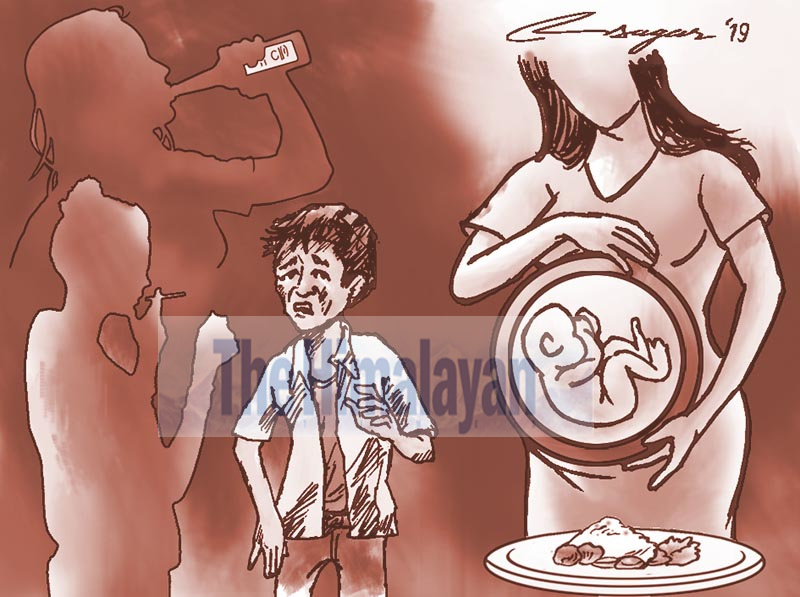Coping with intellectual disability: Govt, NGOs should help
Children with intellectual disability can be given special counselling, physical therapy and taught meditation. Special learning schools should be set up to help them overcome their disabilities to some extent
Intellectual disability (ID), formerly known as mental retardation, is a type of disability that causes limitation in intellectual ability, functioning and adaptive behaviour of a person. Limited mental capacity makes learning difficult. Therefore, learning new information and skills is slow, and it is also difficult to apply information in a practical and functional manner. What made me pick up this issue of intellectual disability was a visit to the Association for the Welfare of Intellectual Handicapped (AWIH), working for the betterment of differently able people. During my meeting with the chairperson of AWIH and with the parents of differently able people, I came to know about the challenges faced by them while taking care of the children.
This article delves into the causes of intellectual disability, challenges faced by the parents, and their expectation from governmental and non-governmental organisation in terms of providing their children with some life skills. There are different causes of intellectual disability. The most common cause of this disease is abnormal genes inherited by the child from the parents and exposure to radiation during pregnancy. Missing or defective enzymes and chromosomal glitches can cause mental retardation. Down syndrome is one such condition, characterised by rough and allergic skin, very small eyes, a flat face and a fatty body. Other genetic conditions causing mental retardation are William’s syndrome, Angelman syndrome and Prader-willi syndrome.
The intake of alcohol or drugs, teratogenic medicine can adversely affect the growth of the foetus and prevent brain development. This leads to both physical and mental disabilities in children. Infections like encephalitis and syphilis can also lead to mental retardation. Brain development in the foetus begins about three weeks after fertilisation, when it is highly susceptible to diseases. Ingestion of heavy metals like lead, mercury and cadmium, and exposure to radiations like X-rays and chemicals can have a negative impact on the brain development of the baby.
Malnourished women mostly give birth to premature babies, who have low birth weight. During the birth process, the baby may suffer from temporary oxygen deprivation or birth injuries due to use of forceps and vacuum birth. In addition to this, due to excessive use of pain killers, or careless medical attention or non-attendance during labour could cause intellectual disabilities in children. After childbirth, babies may be susceptible to illnesses like whooping cough, malaria, mumps, measles and encephalitis, which can lead to intellectual disabilities as they start growing up. Other factors like environmental pollution, accidental ingestion of poison and domestic violence can also cause mental disability.
Parents of differently able children face psychological, emotional, social and economic challenges. It is estimated that in the world, up to 20 per cent of the children suffer from mental illness, like hyper kinetic disorders, depression, psychosis, pervasive development disorders, attachment disorders, conduct disorder, substance abuse or eating disorders.
Constant care of such children can be stressful for the parents or caregivers in the family. Such parents are often concerned about the present and future of their children. The parents especially worry about the future of their children because of the inability of the child in accomplishing personal and social needs, such as self-care and education. The child is unable to perform certain tasks expected at a specific age, such as feeding, attending to oneself in the bathroom, bathing and dressing.
Parents also experience communicative problems with their children due to their inability to talk. Social challenges are concerned with inadequate social service for their children, stigma attached to such disability, burden of caring, lack of public awareness of mental illness, lack of social support, and problems with social life. The economic challenges are poverty, child care interfering with various income-generating activities in the family, and extra expenses associated with the child’s illness.
The parents of children with intellectual disabilities at AWIH said living with a mentally disabled child was emotionally stressful. Moreover, the children are sometimes mistreated by people like being beaten, pushed, physically and sexually abused.
There is no specific treatment for such disease. But, these children can be given special counselling along with their parents, physical therapy and taught meditation. Special learning schools should be set up to help them overcome their disabilities to some extent. One should consult a genetic counsellor before conceiving a child, especially if the family has a history of genetic disorders. One should abstain from taking alcohol during pregnancy and should not take any medicine without a doctor’s prescription. Proper nutritional diet and regular checkups will help prevent intellectual disabilities in babies.
Parents of mentally ill children try to seek professional and spiritual help from religious and traditional healers. Furthermore, they expect professional assistance and social support from the government, private sector and non-governmental organisations. Most importantly, they want to know who will take care of their children after their death.
Priya is a lecturer at Orchid International College






